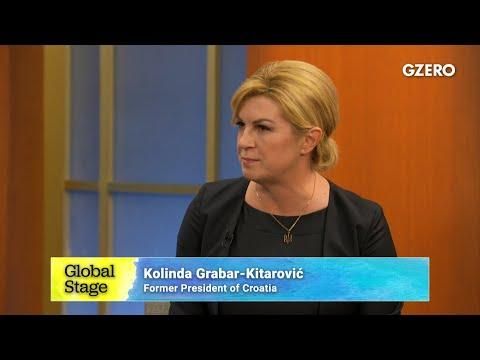Crisis Recovery
Putin would rather die than admit defeat in Ukraine, says former Croatian president

- YouTube

Kolinda Grabar-Kitarović knows a thing or two about Vladimir Putin, who she met multiple times when she was Croatia's president. So, how does she see the future of Russia's war in Ukraine?
It's not looking good.
In a Global Stage livestream conversation held at United Nations headquarters, Grabar-Kitarović says that Putin is unlikely to back down from a "special military operation" driven by what the Russian leader sees as Western humiliation during the Cold War.
Although the war has weakened Russia's economy and military and made the country a junior partner to China, the former Croatian president thinks Putin “would rather die than admit defeat."
Since Ukraine will also not cede an inch of sovereign territory, Grabar-Kitarović believes the fighting will continue. And a ceasefire won't stop Putin from trying to realize his ultimate ambition of taking over all of Ukraine.
Europe can no longer rely on the US and must step up to defend its own future, Ian Bremmer reports from the Munich Security Conference.
The Supreme Court has struck down President Trump’s use of the national emergency clause to impose sweeping tariffs around the world. In this Quick Take, Ian Bremmer explains why this ruling was predictable and why it’s a major setback for Trump’s trade strategy.
“For India, AI stands for all inclusive,” reads the billboard outside this week’s AI Impact Summit in New Delhi organized by the Indian government, the first major gathering on the subject in the Global South.